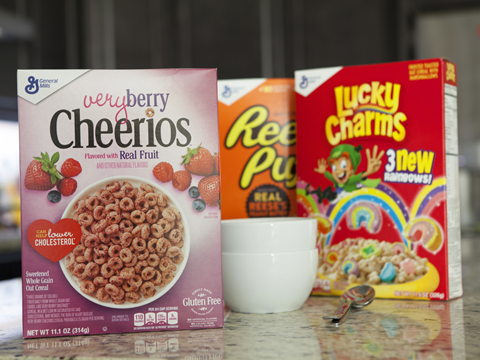
40% of General Mills shareholders have voted in favour of a Green Century proposal requesting that the company report on its sustainability-minded packaging progress, including plastic reduction and clear labelling.
Green Century urges the food company – which oversees such brands as Häagen-Dazs, Betty Crocker, and Nature Valley – to assess potential methods of increasing the ‘scale, pace and rigor’ of its sustainability-minded packaging efforts in a report. This includes cutting down on plastic packaging – responding to growing fears that global plastic consumption could double by 2040.
In response, Green Century argues that most plastic is ‘not feasibly recyclable’ and aligns with the United Nations Environment Programme’s view that reducing plastic use is the best solution.
“Plastic pollution is harming our oceans, our wildlife, and our health,” said Leslie Samuelrich, president of Green Century Funds. “General Mills’ investors have sent a strong message that the company cannot recycle its way out of the plastic pollution problem.”
However, a proxy statement released by General Mills before the latest vote suggested that the proposal is ‘unnecessary’, given that the company already discloses its annual progress towards a target of designing 100% of its packaging for recyclability or reusability by 2030.
This echoes its stance on a similar proposal filed by Green Century in 2022. It requested that General Mill assess its options for reducing its plastic use; while 56% of shareholder votes were cast and some plastic-related disclosures have come to light in the meantime, Green Century asserts that General Mills ‘neither issued the requested report nor disclosed substantive approaches, targets or plans’.
“General Mills’ emphasis on plastic recyclability over plastic reduction is misleading and ineffective,” said Annie Sanders, Green Century’s director of shareholder advocacy. “At the end of the day, General Mills needs to do right by its shareholders and the world around them. And the message from shareholders is clear: It’s time to reduce plastic pollution.”
In fiscal year 2023, General Mills claims that 11% of its packaging by weight was made of plastic, and 93% was considered recyclable or reusable by weight. It also notes the company’s newest effort to cut down on plastic packaging in its fruit snacks.
Yet the company has also faced controversy surrounding its recycling labels. Last year, it was reported by ABC that store drop-off systems are failing to recycle plastic bags and films, with Bloomberg claiming that Nature Valley Granola Bar wrappers are not being recycled via store drop-off schemes but landfilled, incinerated, or exported.
Therefore, Green Century’s proposal encourages General Mills to ensure that its recycling labels are not misleading – following in the footsteps of companies like Mondelez, which plans to reduce its plastic packaging and remove its “store drop-off” and “check locally” recycling logos by 2025.
The news follows a series of revisions to various companies’ sustainability practices and targets throughout 2024. First, Unilever adjusted its goal to halve its virgin plastic consumption by 2025, instead aiming for one-third by 2026.
Critics feared that the changing goalposts could lead to 100,000 tons of fresh plastic being produced every year and opposed the decision, but others argued that the move was a sensible business decision.
Colgate-Palmolive subsequently reported that 89.5% of its packaging was technically recyclable, reusable, or compostable by the end of 2023; yet it warned that it might fall short of its 100% target for 2025, pointing to “industry-wide challenges” relating to flexible packaging.
Additionally, PepsiCo says that it cut virgin plastic from non-renewable sources by 1% per serving last year, and that it utilized 10% recycled content across its portfolio. Nevertheless, it predicts that it will miss its targets to design 100% of its packaging for recyclability, compostability, biodegradability, or reusability by 2025 due to “a unique set of challenges”.
If you liked this story, you might also enjoy:
The ultimate guide to the Packaging and Packaging Waste Regulation in 2024
How are the top brands progressing on packaging sustainability?
Sustainable Innovation Report 2024: Current trends and future priorities
Everything you need to know about global plastic sustainability regulation














No comments yet